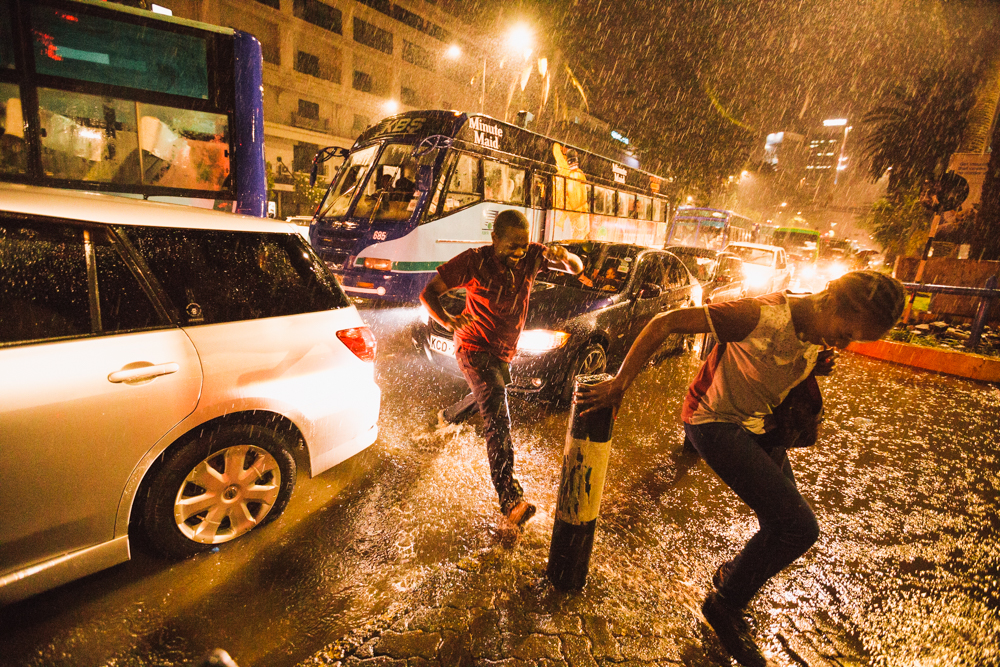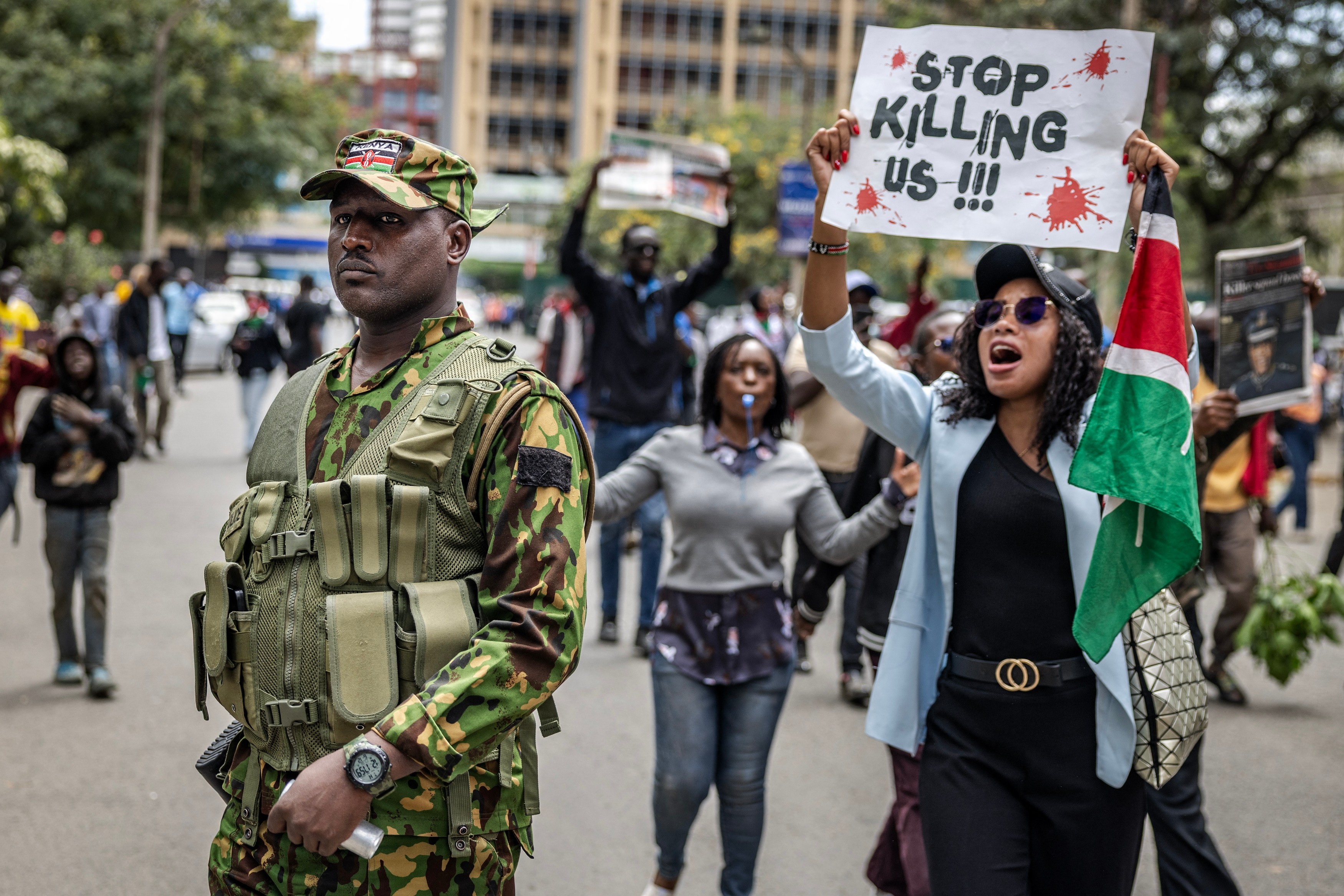
Let’s Talk About The ‘Somali Takeover’
It’s Thursday, 8:57 PM. It’s drizzling in Nairobi.
I’m sipping a cup of ginger and cinnamon tea inside a small, quietly stylish spot called Doppio Coffee House, tucked in the corner of Kilimani Mall. For a place that’s hidden from plain sight, it’s gone all in on aesthetics—fancy bicycle rims hanging from the ceiling, pallet mbao on the walls, and hidden LED lights giving off that modern-rustic vibe. The logo is a broken Kenyan flag made of what looks like light steel. It’s creative. And slightly poetic. Depending on how you feel about this country.
Behind the counter, the barista—a short, light-skinned, bald, tattooed, and left-handed man—moves with a kind of casual precision. He has the kind of accent that says, “I brunch.” He wears black earrings and has the confident vibe of someone who listens to old Kanye religiously. Crank-era rap plays in the background. You know, the type of music that made men feel powerful just by yelling into a mic.
I ended up here because of the drizzle. But let’s be honest—Nairobians don’t need much convincing to stay out a little longer. I’d been working from home all day and wasn’t in a hurry to return to the same four walls. Sometimes, a man needs to delay going home—not for anything dramatic, but to exhale. To sit with a hot drink and his thoughts. To reset.
To be fair, I didn’t come here for tea. I came for mandhi pilau from one of the restaurants upstairs. There’s a small upper floor where they’ve laid out a carpet. You fold your legs, sit down, and eat like a tribe of cavemen, which comes naturally. There’s something profound about eating in those Arabic, Swahili, or Somali restaurants that feels grounding. The food is heavy and generous. The setting is intimate. And the lack of cutlery? Healing. There’s something deeply liberating about ditching cutlery and using your God-given tools to tear through a mountain of meat and rice. Forks are for colonisers and people who hate joy. Sometimes dignity isn’t in the dining experience—it’s in how you eat the meal.
Kilimani Mall has a scent. It smells like Eastleigh’s cousin who studied abroad. It’s chaotic—but with glass doors. Think Eastleigh minus the skyscrapers, plus functioning bathrooms. You walk in and you’re met with Islamic fashion, Somali apparel, hijabs in a hundred colours, kanzus, cheers baba jackets, flashy sneakers, and the strong perfumes that can rearrange your sense of smell. You’ll find forex bureaus every few shops, barber shops with velvet seats, and boutiques selling both brand-new shirts and broken suits pretending to be premium. It’s chaotic, curated, and very Somali.
And yet, every time I walk through these spaces, I’m reminded of how quickly we fall into tired narratives. The usual whispers: “Somalis are taking over Nairobi.” Never mind that we don’t say the same when a neighborhood turns predominantly Kikuyu, or Luo, or Indian. That’s just a good investment. But when it’s Somali? Suddenly we talk about pirate money or a money-laundering front.
Earlier in the same restaurant, I overheard two Somali men talking about travel packages. Something about Mayfair and getting good deals for two during Eid. They were speaking in English. Polite. Well-dressed. Talking business. But I could already imagine someone hearing them and confirming their theory that “they’re taking over.”
The irony? Most Kenyans couldn’t tell you the difference between someone from Mandera and someone from Tana River. But mention the word “Somali,” and everyone becomes a geopolitical analyst.
We forget that Somalis, like everyone else, have their elite. The businessman flying to Dubai to import perfumes isn’t the same as the herder in Wajir wondering when the next borehole will be dug. But class is the one thing we never really talk about. Because it’s easier to blame a hijab or a Somali accent than to confront the fact that we live in a country where power is less about tribe and more about who can afford to live above the floodline, literally and metaphorically.
Kilimani and Eastleigh exist in the same city, but they live in different worlds. Kilimani has cafés that serve aesthetic lattes with edible flowers. Eastleigh has stalls where you can buy a full outfit for the price of a cocktail in Kilimani. One place hides its hustle in glass and minimalism; the other wears its chaos like a badge of honor. But both are driven by the same thing—people trying to survive, build, and belong.
The difference is that Kilimani’s wealth is treated as an aspiration. Eastleigh’s is treated with suspicion.
And yet, beneath the perfumes and the projections, there’s something deeply familiar. The mother selling hijabs in a stall in Eastleigh is no different from the woman selling bananas by the roadside in Keroka, Kisii. The boda guy in Kinondo, Msambweni, shares the same struggles as the one outside Prestige Plaza. A Somali struggling with a Social Health Authority (SHA) that doesn’t work is no different from a Luo cancer patient hanging on to life while waiting for a radiotherapy machine to be fixed at Kenyatta National Hospital. The problem isn’t where they come from. It’s what they’re up against – class.
We’re not suffering from a Somali takeover—we’re suffering from class amnesia. We forget how similar our frustrations are. We forget that the person we’ve been told to fear is often the one living the same reality, just in a different dialect or dress code.
The average Somali is no different from the average Ogiek, Luo, or Kikuyu. But since we’ve inherited a country where tribe was weaponised before most of us were born, we’ve learned to see each other through filters that serve no one but the elite.
And the elite? They have already left the WhatsApp group. They’re not arguing about ethnicity. They’re too busy shaking hands, ‘donating’ land to build affordable housing, and flying choppers across the country.
So maybe it’s time we stopped treating ethnicity as the main threat. The problem was never that someone prays differently, dresses differently, or speaks with an accent you don’t understand. The problem is a system that keeps all of us distracted—arguing about who belongs where—while it quietly concentrates wealth, silence, and power in the hands of a few. Ethnicity has become a decoy, a distraction, a tired script. The real fight is not against each other. It’s against the idea that only some people deserve to live with dignity while the rest of us hustle for leftovers.


